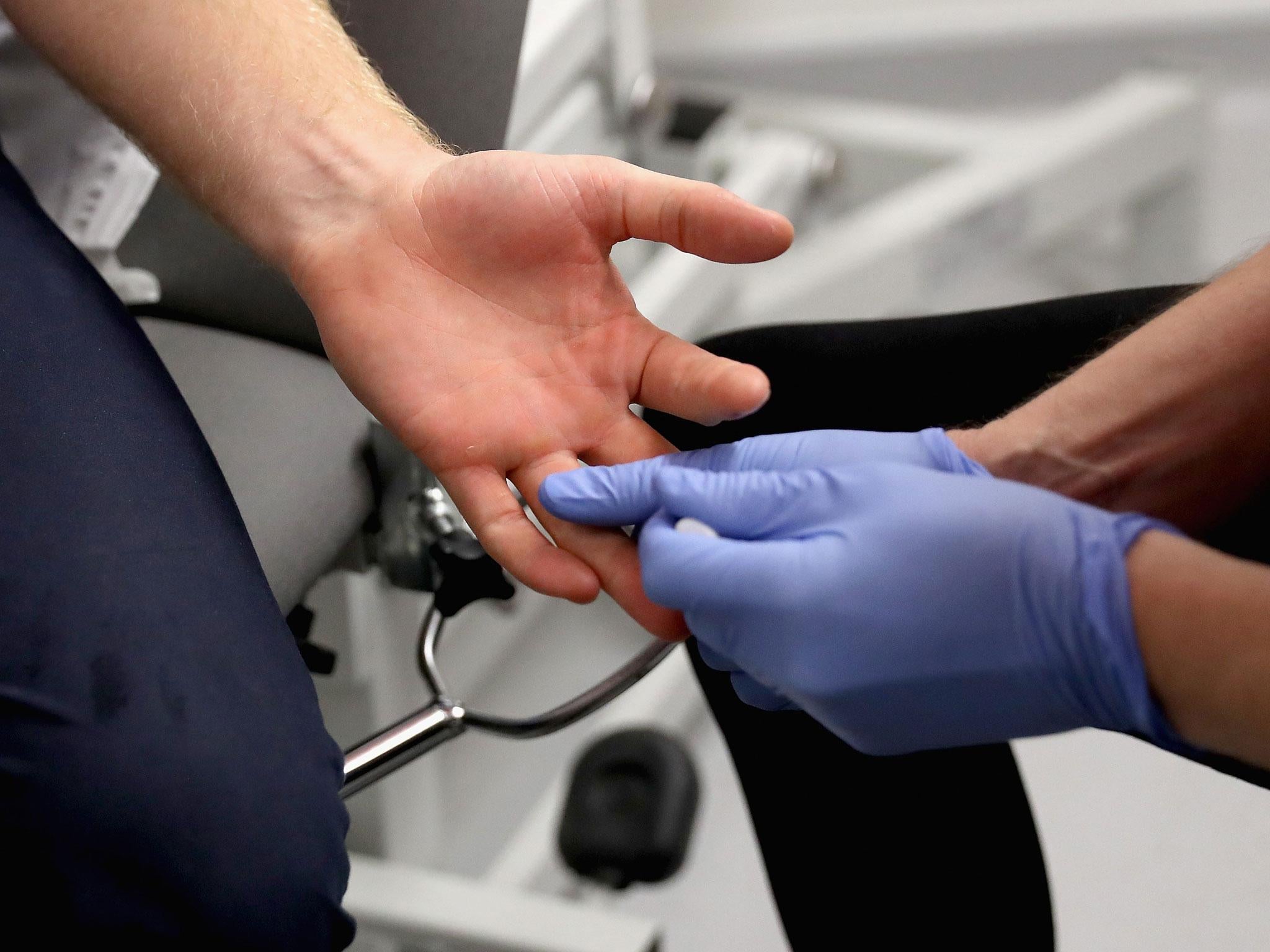HIV tests for new patients at GP surgeries could save lives and money, study finds
Experts recommend rolling out finger prick tests in all 74 local authories in England with high rates of the virus

Your support helps us to tell the story
From reproductive rights to climate change to Big Tech, The Independent is on the ground when the story is developing. Whether it's investigating the financials of Elon Musk's pro-Trump PAC or producing our latest documentary, 'The A Word', which shines a light on the American women fighting for reproductive rights, we know how important it is to parse out the facts from the messaging.
At such a critical moment in US history, we need reporters on the ground. Your donation allows us to keep sending journalists to speak to both sides of the story.
The Independent is trusted by Americans across the entire political spectrum. And unlike many other quality news outlets, we choose not to lock Americans out of our reporting and analysis with paywalls. We believe quality journalism should be available to everyone, paid for by those who can afford it.
Your support makes all the difference.Offering a routine test for HIV when individuals first sign up to a new GP surgery in high risk areas could save lives and the NHS money, a study has found.
Patients at 40 GP surgeries in Hackney, where 8 in 1,000 residents are HIV positive, were given a rapid finger prick test as part of regular tests when signing up to a new practice. This was found to raise the rate of diagnosis fourfold.
The researchers behind the study of more than 86,000 people, published in The Lancet, are now calling for the approach to be expanded into all 74 of England’s local authorities with high rates of the virus.
It is estimated that the cost of rolling out the screening to all 74 authorities would be £4m.
Though more expensive at first, due to more people being diagnosed and requiring treatment, researchers claim that modelling shows primary care screening becoming cost effective in high prevalence areas within 33 years.
Treating those with HIV sooner decreases the chance of spreading the virus, meaning fewer people will ultimately have to be treated.
A high prevalence HIV area is one where there are more than two diagnosed infections per 1,000 adults.
Dr Werner Leber, from Queen Mary University of London, who led the study said: “We've shown that HIV screening in UK primary care is cost effective and potentially cost saving, which is contrary to widespread belief.”
“This is an important finding given today's austerity. Financial pressures, particularly within local authorities' public health budgets, mean that the costs of HIV testing are under intense scrutiny, and in some areas investment in testing has fallen,” he added.
In the UK, an estimated 13,500 people are thought to be carrying HIV without knowing it, thus delaying their own treatment and increasing the chances of passing an infection on to someone else.
Dr Michael Brady, medical director of the Terrence Higgins Trust, an HIV charity, said: “We urgently need new approaches to HIV testing that are delivered at scale and targeted at those at risk.”
“Testing in general practice is a key component of this because, whilst people living with undiagnosed HIV are not accessing existing HIV testing services, they do visit their GP and there are many missed opportunities to test.”
“I hope that policy-makers, commissioners and healthcare providers act on these findings and invest in HIV testing in primary care.”
Subscribe to Independent Premium to bookmark this article
Want to bookmark your favourite articles and stories to read or reference later? Start your Independent Premium subscription today.
Join our commenting forum
Join thought-provoking conversations, follow other Independent readers and see their replies
Comments